WordPress.com vs. Blogger.com – Brief comparisons
Have been using WordPress for over two years now and Blogger for a year.

Had always hosted WordPress as my personal blog while chose to start using Blogger just as a test.
We now have WordPress.com run by the folks to made WP, while Blogger is owned and operated by the infamous Google
Who can use it?
While you have total control on your WordPress blog, you have very limited control on your WordPress.com blog, thus making it a good testing ground for beginners. (read my post on my first impressions of WordPress.com)
Blogger on the other hand can be used both by a beginner as well as a seasoned blogger.
Well, signing up for Blogger is free and you can also create unlimited blogs with a single username, unlike WordPress.com where you can create just one. Also, WordPress.com is currently only through invitation.
Composing & Publishing
A few common things between WordPress.com and Blogger are the ability to set your title and description of posts (of course!), the WYSIWYG editor for composing and live editting of your posts as you browse your site.
One place where Blogger scores over WordPress is the auto-save feature. In case your browser crashes you can simply restore your old post, even if you forgot to save it. This isn’t possible with WordPress or WordPress.com yet and can be a very useful addition.
While WordPress.com doesn’t allow you to change your blog address, Blogger allows you to change your blog address. Additionally you can also publish your blog to your own server using FTP or SFTP.
Well, though I don’t know how many would want to do so!
One plus point of WordPress.com is the ability to customize the way the date is displayed. Though Blogger gives you a lot of options to do so and is easier to use, WordPress.com lets you use the PHP Date format.
Permalinks
Both services use permalinks, though they have different formats. I very much prefer the one offered by WordPress.com over that by Blogger, which has a very confusing permalink structure.
Additionally Blogger has a very weird way of numbering your posts unlike WordPress.com, where posts are numbered serially.
Pinging
Pinging is the best way of notifying a lot of blog aggregating services that you have updated your blog. This is where Blogger loses out, as it only pings Weblogs.com. WordPress.com on the other hand automatically pings Ping-O-Matic (which in turns pings a lot of services)
Commenting
Now this is one place that Blogger loses out rather miserably. Though both WordPress.com and Blogger do a good job in protecting comment spam, WordPress.com has a powerful commenting system with both Trackback and Pingback.
Blogger only allows visitors to comment. You can enhance Blogger by using Haloscan, but then it is a third-party service and is limited in many respects. Adding trackback and pingback to Blogger is a much demanded feature. They do have backlinks, which is a newly added feature.
Templates
Now this is where Blogger gets one up. Blogger allows you to completely (and I do mean completely) allow you to customize your template. Though I took the easy way out of choosing a ready made template and then modifying it like I wanted it to, you can very well begin from scratch and make your template of your own. Blogger gives you a lot of tags to aid in the template.
It now also allows you to automatically incorporate Adsense into your blog template, so you can earn some money (hopefully). I haven’t used this feature as I had already added the adsense code a long long time back.
Only one negative factor is the need to republish your entire blog if you decide to change some code in the template or your settings, which can be a pain if you got a lot of posts.
However, I must admit that I have really struggled to get my site to validate.
WordPress still needs to provide any kind of templating system and this is a major demand from all around!
Feeds
Publishing feeds is a new popular method used by blogs and forums to let visitors know when the site has been updated. It is more popular than a newsletter as it doesn’t require the user to “sign up”. All the user needs is a Feed Reader or any online service that lets you subscribe to feeds.
WordPress.com publishes Atom, RSS and RSS2 types of feeds, while Blogger.com publishes only Atom. Anyway, I prefer Feedburner for my feed management.
Another good thing of WordPress.com is that you can have feeds for every category besides the entire site.
Other features
Blogger also allows you to send the post via email. I haven’t used it, but if you are publishing a technical blog, this can be a useful user friendly addition.
WordPress has a better Photo management and gives you 26Mb of space. Blogger has finally allowed you to upload images, but the amount of space is unclear.
WordPress also allows you to create categories (tags) thereby letting you neatly categorize your posts. Blogger desperately needs to have this feature incorporated in it.
Conclusion
In my opinion there isn’t a clear winner between the two. As both keep bettering each other in some aspects while losing out on other, it just leaves you to decide what features are more important to you and accordingly make the choice.

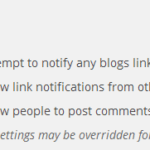

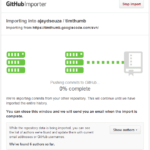
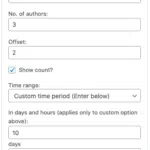


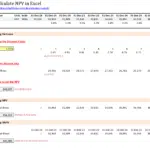
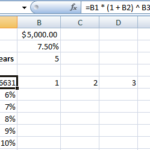
This was very useful, as I’m huning for the \”right\” blogger at this time. Thing is, there are so many out there. Do you know of a comparison chart or can recommend a good blogger for the beginner, that can expand as I get more experienced?
–Lou
[email protected]
Hi Lou,
I have only had experience with WordPress and Blogger and so am only in a position to comment on these two as I have done above.
If you are planning to expand on experience then WP is a good solution because you could install your own software on your own host and then gradually work on it.